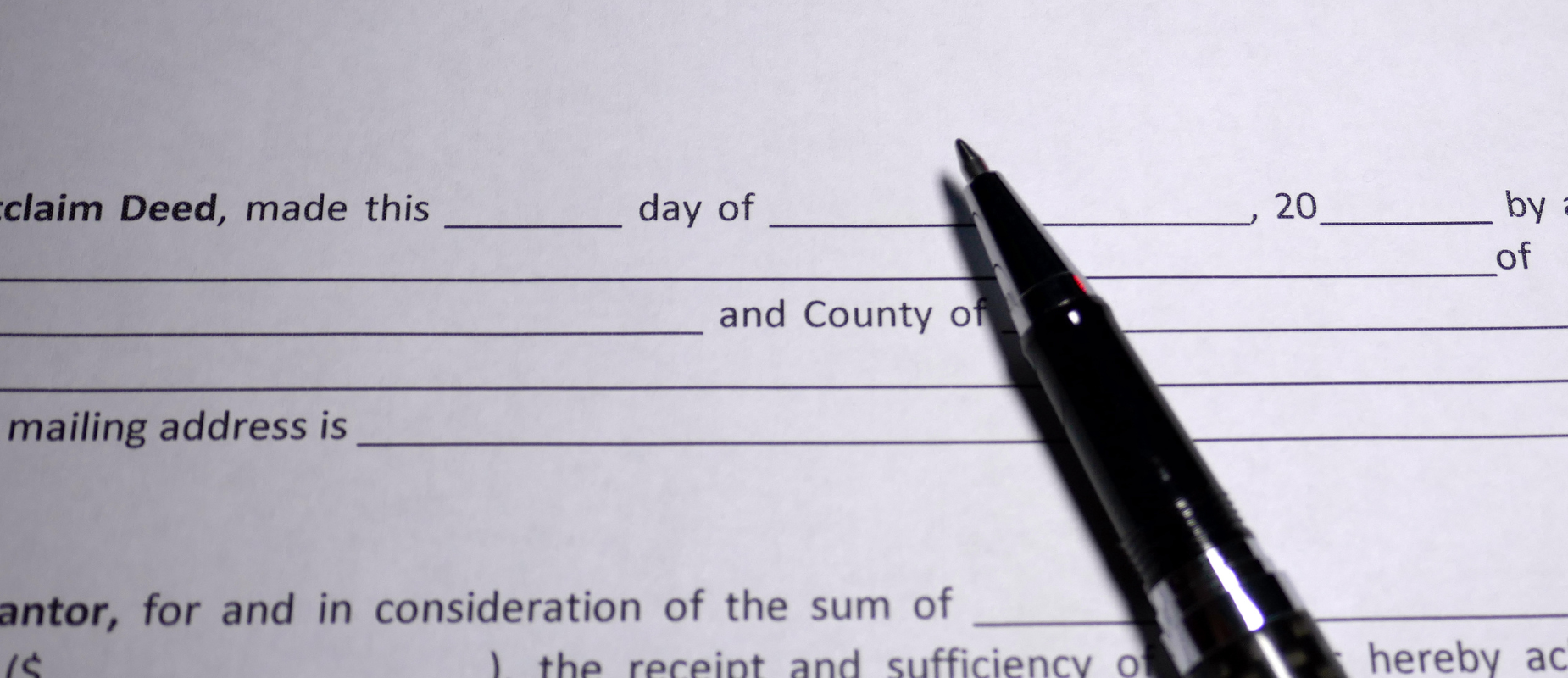North Carolina Quitclaim Deed Overview
How to File a Quitclaim Deed in North Carolina
A quitclaim deed in North Carolina is a legal document used to transfer a property owner’s interest to another party without any warranties regarding the title’s validity. The grantor does not guarantee that they own the property free and clear; they merely transfer whatever interest they possess. This means the person giving the property (the grantor) is not promising that the title is clear of liens, debts, or other claims—they are simply giving up whatever interest they have, whether good or bad.
Common Uses of Quitclaim Deeds
- Transferring property between family members (e.g., from parent to child)
- Adding or removing a spouse from the title during marriage or divorce
- Transferring property into a trust or business entity such as an LLC
- Correcting errors in a previous deed (e.g., misspelled names or incorrect legal descriptions)
Step-by-Step Guide to Filing a Quitclaim Deed in North Carolina
1. Obtain a Blank Quitclaim Deed Form
You can find standardized North Carolina quitclaim deed forms through various legal form providers or consult with a real estate attorney to draft one tailored to your situation.
2. Complete the North Carolina Quitclaim Deed Form
Ensure the deed includes:
- Grantor’s full legal name and address
- Grantee’s full legal name and address
- Legal description of the property (as found on the current deed)
- Parcel Identification Number (PIN) from the county tax office
- Consideration amount (even if nominal, e.g., “$10 and other valuable consideration”)
- Preparation statement with the name and address of the individual who prepared the deed
3. Notarize the Deed
The grantor must sign the deed in the presence of a notary public. Notarization is mandatory for the deed to be legally valid in North Carolina.
4. Calculate and Prepare to Pay the NC Excise Tax
North Carolina imposes an excise tax on real estate transfers at a rate of $1.00 per $500 of the property’s value or consideration, whichever is greater. For example, a property valued at $200,000 would incur a $400 excise tax. This tax is typically paid at the time of recording the deed.
5. Record the Deed with the County Register of Deeds
Submit the completed and notarized deed to the Register of Deeds office in the North Carolina county where the property is located. Be prepared to pay the recording fee, which is generally $26 for documents up to 15 pages, plus $4 for each additional page. Additional fees may apply for non-standard documents or multiple instruments.
Important Considerations
- No Title Warranty: Quitclaim deeds do not provide any guarantee about the property’s title. The grantee assumes all risks regarding liens, encumbrances, or other title issues.
- Use in Divorce or Separation: When transferring property between spouses due to divorce, the excise tax may be waived. Consult with the Register of Deeds or a legal professional to confirm eligibility for this exemption.
- Legal Advice: Given the lack of warranties, it’s advisable to consult with a real estate attorney before proceeding, especially if you’re unfamiliar with the property’s title history.
Watch How To File A Quitclaim Deed In North Carolina
Post-Filing Considerations for North Carolina Quitclaim Deeds
What Happens After Filing a Quitclaim Deed?
Once you file your quitclaim deed with the Register of Deeds, the county will update the official property records. However, you may also need to notify the county tax office to ensure future tax bills are sent to the correct owner.How to Verify That Your Quitclaim Deed Is RecordedYou can verify your deed has been recorded by: Searching online through your county Register of Deeds website
Additional Resources for North Carolina Property Transfers
Understanding North Carolina Property Law
It’s important to review North Carolina’s General Statutes, particularly Chapter 47, which governs property transfers. You can also consult your county’s Register of Deeds website for local requirements and procedures. Where Can You Find More Information?
- North Carolina State Bar
- North Carolina Real Estate Commission
- Your local Register of Deeds website
Online Tools and Deed Preparation Services
Online services and templates for North Carolina quitclaim deeds are available, but they do not replace legal advice. Make sure any form you use meets North Carolina’s specific requirements.
Need Help Selling Your Home in North Carolina?
If you’re thinking of selling a property in North Carolina—whether in Greenville, Raleigh, Durham, Fayetteville, or anywhere else—Turner Home Team is here to help. We specialize in helping homeowners sell quickly and hassle-free.
For personalized assistance, contact us today at (252) 525-4780 or visit our website. We’re ready to help you through every step of the process.
Conclusion
Filing a quitclaim deed in North Carolina is a straightforward process, but it carries significant implications due to the absence of title warranties. Ensure all documents are accurately completed and consider seeking legal counsel to protect your interests during the property transfer.
If you need assistance with drafting the deed or have further questions, feel free to contact a qualified legal professional or your county’s Register of Deeds office. We highly recommend you reach out to a local attorney for advice on this process before doing it on your own!


